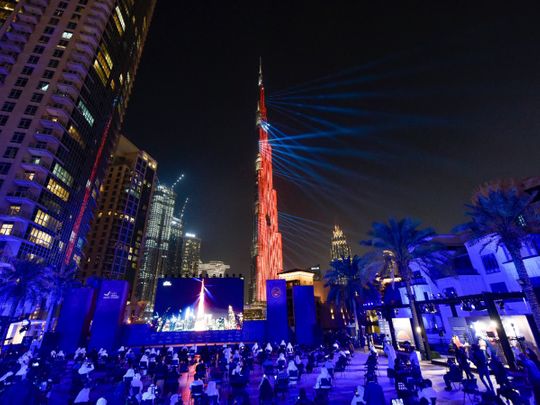
UAE’s Hope Probe enters Mars Orbit
I am writing from Winnipeg in Canada, where the temperature right now is -39 degrees Celsius. Even with this ridiculous temperature, I am making my frozen fingers type out this letter of congratulations to your country for the magnificent achievement of orbiting your Al Amal spacecraft around the mysterious planet Mars. This can only add to your country's honour and a great benefit to humanity as a whole—all the best from Canada.
From Ms Laurence Mardon
Canada
Education during COVID-19
Currently, we are living in times where fear haunts and engulfs all of us in this world. The fear of getting affected with COVID-19 is making everyone sick. Socialising, meeting friends, partying, and travelling are all things of the past. The new year brought us an initial reprieve, but even that seems a distant dream now as global cases surged again, with COVID-19 variants. Amidst all this are children's board exams, which is a concern for parents. They hope that their children do not suffer the loss of continuity in education, as they took most of the lessons online. Children have been under tremendous psychological pressure due to the ongoing pandemic since the beginning. Of course, children have missed their physical school, regular classes, assemblies, sports, and entertainment, which was a routine. More importantly, for the ones leaving school this year and joining a university, they will surely miss their final year that they would have enjoyed with their peers and teachers.
They will miss convocation ceremonies to mark the end of their schooling, which many of them eagerly awaited since the time they stepped in their final year of education. The only concern and challenge for schools in the coming months are to successfully conduct end-of-year assessments and exams, whether practical or theory, with utmost safety when students attend physical schooling. The only feasible and ideal situation would be to divide the children into groups, because of the many children appearing in board exams. I want to draw attention to the fact that pupils in the UAE got ample time to cover their syllabus. Even as the education board reduced the syllabus, teachers did a marvellous job by adapting to teaching online. The shift was swift, smart and made online learning look very easy for the children. Hopefully, with the vaccination drive in full swing, it should mitigate COVID-19 to a greater extent. I want to hail the UAE Rulers' move who have done tremendous work for all its residents and citizens by acting timely and lending their maximum support in monitoring it closely in all spheres since the beginning of the pandemic.
From Mr Mazher Mohammed
Abu Dhabi, UAE
Memories of early radio
The United Nations Educational, Scientific and Cultural Organisation (UNESCO) observes World Radio Day on 13 February. In this busy life, whenever I travel by car, I listen to the radio. It has been my companion during many long journeys. The radio we have in our cars is an evolution of the rectangular boxes, common in most homes until the emergence of television in the early 1970s. It had two knobs, one for controlling the volume and the other for tuning into radio stations. History says Radio broadcasting began in the US in the mid-1920s and in India in 1923, while the country was still under the British government. The All India Radio (AIR) came into existence in 1932, until then this service was known as the Indian State Broadcasting Service (ISBS), and a license was mandatory to own a radio, and there were yearly subscription fees. Various channels like Vividh Bharati, Radio Ceylon, and so on were the prominent ones. In my childhood, radio was the medium of communication, and I was gifted a battery-operated radio by my father in the year 1975. We got to know about the happenings around us through the radio. Hourly news updates in vernacular languages and the English news were the most sought after programmes, especially during election days and on the day of results. Teachers would insist on us listening to the English news and hold quiz competitions to improve our diction and increase our general knowledge. The radio connected us with the world and was next only to newspapers. People would listen to cricket commentaries on the radio, and it was pulsating. My innocent mind then, could not understand how we could hear people talking through this box. There was always eagerness, a mystery to find out how it works. It was all magical, and we were awestruck. With the dawn of the television during the early 1980s, the radios lost their place in homes' living rooms. But even today, the nostalgia of listening to the radio brings back some sweet childhood memories.
From Mr Eappen Elias
Dubai, UAE








